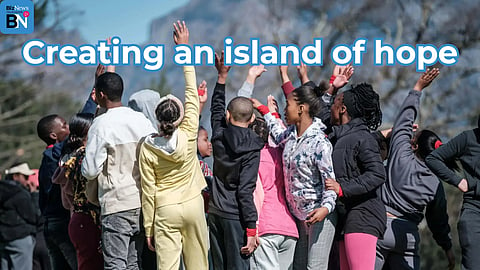Creating an island of hope for under-resourced schools in Franschhoek – Catherine Janse van Rensburg
In the under-resourced communities of the Western Cape, places where poverty, overcrowding, and limited access to safe outdoor spaces are daily realities—children don’t always get the chance to enjoy the beauty and nature that this part of the world has to offer. The Bridges Outdoor Education Programme aims to change that. Through fully funded camps at the Bridges Retreat Centre in Franschhoek, the programme takes Grade 5–7 pupils from 15 partner schools out of their daily environment and into nature, where they grow through team-building and problem-solving. Catherine Janse van Rensburg, the fundraising manager at Bridges, told BizNews that the camps are equipping children with critical team-building and communication skills, and that they are also shifting classroom dynamics. “Teachers report that the so-called troublemakers at school,” she says, “are often the gems at camp.” The programme also creates space for pupils from more affluent schools and employees from local companies to volunteer. It bridges not just communities but perspectives.

